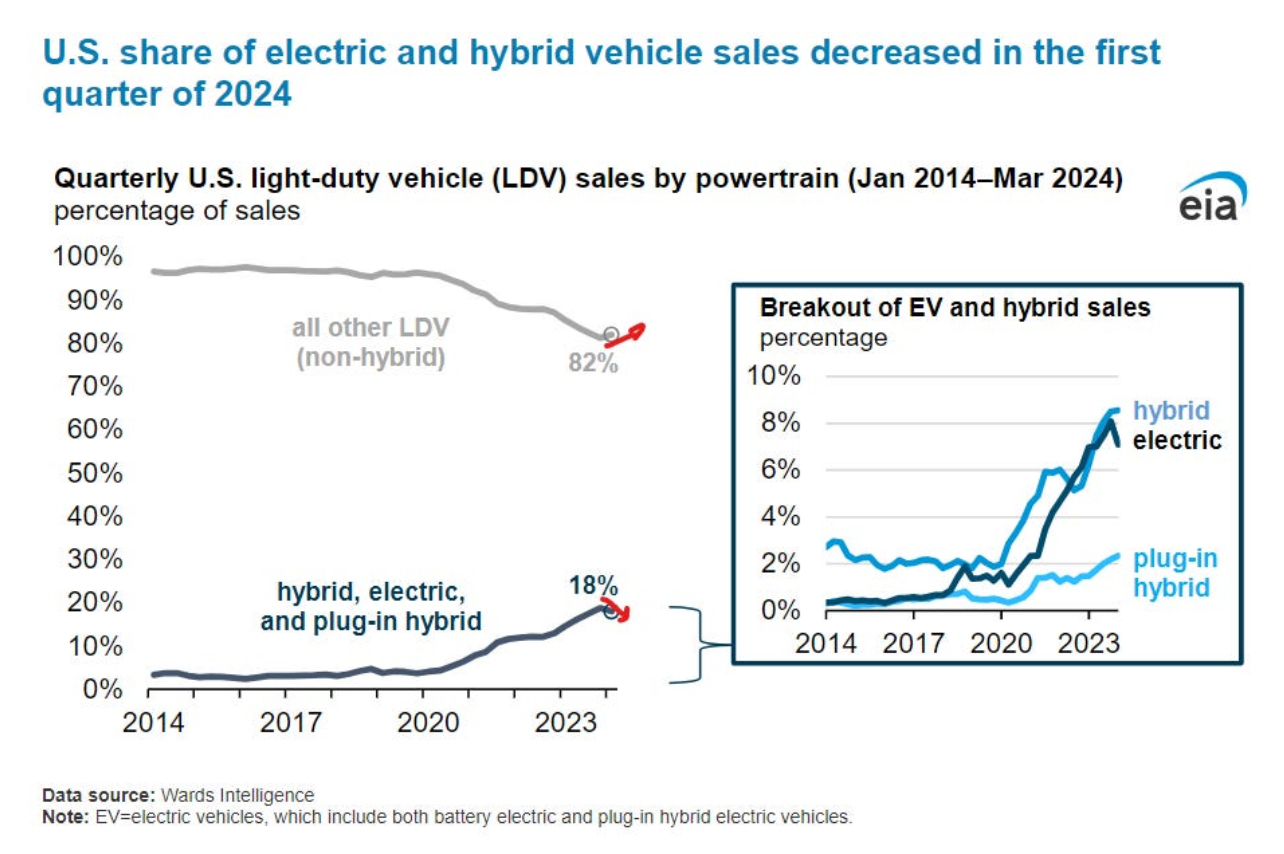
Sponsored By: Reflect
This essay is brought to you by Reflect, an ultra-fast notes app with an AI assistant built in directly. Simplify your note-taking with Reflect's advanced features, like custom prompts, voice transcription, and the ability to chat with your notes effortlessly. Elevate your productivity and organization with Reflect.
It was a big week in AI, with OpenAI and Google duking it out over product announcements. We use the word “announcement” deliberately—the products that customers can use today were few and far between. Dan and I are in Seattle the coming week for a Microsoft AI event, where hopefully we’ll hear about products that 1) work and 2) are available. (Stay tuned for our coverage.)
Now, on to everything we published this week, along with some Anthropic backchannel and our take on the latest tech and business news.—Kate Lee
Was this newsletter forwarded to you? Sign up to get it in your inbox.
Our stories
🔏 "GPT-4o and OpenAI's Race to Win Consumers" by Dan Shipper and Evan Armstrong/Chain of Thought: OpenAI's latest release may not knock your socks off, but it's a strategic powerhouse. GPT-4o processes video, audio, and text in one model, making it the most user-friendly AI yet—and it's available to everyone for free. Read this to understand how OpenAI is using the classic Silicon Valley playbook to maintain its dominance in the AI race, and what it means for the future.
🔏 "Google Goes All In on AI" by Evan Armstrong/Napkin Math: Google soft-launched 23 AI products at its developer conference, but is the tech giant truly equipped to dominate the AI landscape? Evan dives deep into the three announcements that matter most: agentic search, Android integration, and Gemini 1.5 everywhere. Read this to understand whether Google's breadth and distribution can outpace the focused execution of startups.
“The Hole in the Sky That We Actually Fixed” by Jamie Wong: Government intervention, properly applied, is how frontier technologies get used. That’s why this brilliant piece by a former Figma engineer explores how we fixed the ozone layer, not with privately built technology alone, but with global partnerships devoted to helping the planet. While we may all enjoy the riches that come from the success of big tech companies, the whole point of this industry is to make people’s lives better. This piece (which is part one of a two-part article) is a reminder about how frontier tech can do that.
"Where Are All the Autonomous Vehicles?" by Dimi Kellari: We were promised fleets of autonomous vehicles by now, whisking us around while we relax in the backseat. What happened? Kellari, who has worked at Alphabet's moonshot factory and in transportation tech, reveals three key obstacles: 1) The bar for safety is higher than expected, 2) scaling is incredibly complex, and 3) the unit economics remain shaky. Read this for an insightful bear case check on the AV revolution and a nuanced take on what's needed to (eventually) get self-driving cars on the road.
🎧 "Kevin Roose Has 18 New Best Friends—And They're All AIs" by Dan Shipper/Chain of Thought: Kevin Roose, New York Times journalist and cohost of the Hard Fork podcast, has been experimenting with AI companionship. Over the past month, he made 18 AI friends using apps like Kindroid and Nomi. Listen to or watch Dan's conversation with Kevin to learn about the emotional pull, potential risks, and surprising benefits of befriending AIs. 🔏 Paid subscribers have access to the episode transcript.
The backchannel
When Anthropic named Instagram cofounder Mike Krieger its chief product officer, a friend DMed:
“If Anthropic is consumer-focused, they'll have to deal with the unforgiving nature of consumer math. That's unless they have access to an unlimited marketing budget and burn (e.g., TikTok and Temu). Their hardware is already resource-intensive.
Second acts are difficult in consumer; prior success carries less weight. There are odd exceptions, like Elon or Kim Kardashian, but Kim *is* the mass-market product. Elon is an impressive marketing machine as well.
Success does funky things to judgment. Too much success can be corrupting, especially to those around them. Highly successful people are challenged less. That must shape the quality of their ideas.
It makes me bullish that Anthropic chooses someone deeply mobile. Based on what I know, the Instagram founders are naturally design-first vs. data-first. But Zuckerberg is one of the greatest (of all time) at leveraging data to build and navigate a complicated business. Mike's seen what that looks like.”—A venture capitalist
Want to chat? DM Dan or Evan on X.
Chain of links
GPT4o makes the internet go ohhhhh-ahhhhh. We covered this pretty extensively on Tuesday, but the short version is that OpenAI made its best model free for everyone to use, made it 50 percent cheaper and twice as fast for enterprise use cases, and can now watch a live video and tell you what is happening. If someone showed you this demo four years ago, you would ask how many virgins they had sacrificed to the ghost of Steve Jobs to make it. Amazing stuff.
Google I/O makes the internet mehhhhh. Google launched a very similar suite of products but didn’t actually allow anyone access to them. Its executives mostly said, “Coming soon.” I covered the company’s developer conference on Wednesday for paying subscribers, but the big takeaway is how different the internet will be when Google Search gains the ability to operate software for you.
$150 million for chore-bots. Two of the most important technologies for feminism were the dishwasher and the laundry machine because they automated manual labor historically relegated to mothers, giving them time to pursue their own interests. A co-founder of Cruise, Kyle Vogt, has teamed up with a few other folks to see if they can further automate household chores, and they’ve raised a washer full of cash to do it. LLMs are cool, but never having to scrub the tub again is better.
X.AI chooses the one remaining dance partner. Musk’s X.AI, fresh off a $6 billion capital raise, is in talks for a $10 billion deal with Oracle Cloud. A full-stack AI company has a model, an API business, a consumer application, and servers. X.AI, in one way or another, has everything but servers. With Microsoft and OpenAI firmly entangled and Anthropic engaged in a Challengers-style throuple with Google and AWS, Oracle is about all that’s left for Musk.
So long, and thanks for all the models. Stability AI, the kinda-sorta-but-not-really creator of the Stable Diffusion image generation model, is exploring a sale. The company is low on cash, low on revenue, and high on debt (it owes $100 million to cloud providers), so it would essentially be bought for the team. If you read my article on grifter founders last week, you would’ve seen this coming: Stability’s founder Emad Mostaque has spoken about how he was doing this to help kids in Africa.—Evan Armstrong
The napkin math
It’s rich to be square. Squarespace, a website maker that competes with Shopify and Wix, was taken private in a $6.9 billion, all-cash transaction. That comes out to $44 dollars a share, which is about a 30 percent premium but below the reference price at $50 when it went public in 2021. When your business is just sorta-OK, going private is an ideal way to do big layoffs and restructuring. The public markets are dumb and short-sighted, so this move gives the management team the chance to fix the business. I imagine they’ll rejigger with some generative AI tech and try to better differentiate themselves from Shopify.
No one values their time correctly. Netflix announced that it had 40 million subscribers on its ad tier, with 40 percent of new subscribers choosing to see ads. When paired with the news of all the live-sports it’s adding (such as two NFL Christmas Day games), the mid-wit take is, “We’ve just remade cable.” No! Wrong! Cable was reliant on actually having a cable cord. Instead, streaming is an omni-present, multi-device bundle of entertainment options, now available with ads. Very different value proposition and competitive dynamics.
Addicted to the news? Great, you’re addicted to gambling now, too. Polymarket, a New York prediction market, raised $45 million in Series B funding. The company also disclosed a $25 million Series A round led by General Catalyst. Polymarket’s product allows users to make bets on future events like elections, sports, or other political events. I’ve used the service in the past and made money (fun!). While it could be seen as a gambling product, perhaps it should be viewed as the world’s most prescient oracle. Financial markets have a way of being more accurate than any individual forecaster or policymaker.
Look at me, I’m the AWS now. Coreweave, an AI-cloud computing company, raised $7.5 billion in debt after raising $1.1 billion in equity at a $19 billion valuation two weeks ago. Basically, this company gets lots of Nvidia GPUs and connects them all to the internet which their customer can rent. The competitive advantage is that they aren’t run by Google or Microsoft. Nvidia is (rightfully) worried about customer concentration, and with big tech companies all making their own in-house competitors to GPUs, Nvidia anointed Coreweave as the chosen competitor in a funding round last year and gives them priority access to new chips.
Uber spent $950 million to become a monopoly (in Taiwan). The company is acquiring its primary competitor Foodpanda. Combined, they will have 100 percent market share. While this would clearly create a monopoly of online food delivery in Taiwan, they’ll argue that they are a small portion of food delivery overall. While this may be true, the transaction still feels funny. It’s like I ate 100 percent of the Ben & Jerry’s in my fridge and told my wife that she is welcome to the rest of the food-in-freezer market (it's a half-empty bag of peas).—EA
For the love of charts
Yay, AI! Boo, Green New Deal! Everyone agrees that AI is going to be a massive energy hog. There aren’t enough data centers to manage the energy that tech companies are expected to consume, and even if there were, the grid itself isn’t equipped to generate that much power. But it’s not just AI that’s pushing the grid past its limits. It’s the “electrification of everything,” primarily driven by EVs but also by electric stoves, leaf blowers, and other machines. The Green New Deal is running headlong into the AI revolution. The “good” news, if you can call it that, is that EV’s share of new vehicles declined for the first time this past quarter:
Source: EIA.After rapidly gaining share over the past four years, EVs took a small step back. More energy for AI! But it’s likely a temporary blip, given that higher rates have put more expensive pure-play EVs out of reach for many car buyers. Regardless, it highlights the tension between clean energy ambitions and AI: They’re both competing for a scarce resource (electricity) that can only be resolved by much higher prices or much more energy generation. In the near term, that most likely means firing up a lot more liquified natural gas.—Moses Sternstein
The examined life
Want more creative breakthroughs? Get bored. In his epistolary autobiography, Maker of Patterns, the great 20th century physicist Freeman Dyson described a eureka moment during a three-day Greyhound bus journey through America while daydreaming about physics. On this bus ride, Dyson ended up discovering a unifying theory for how light and matter interact, laying the groundwork for the field we know today as quantum electrodynamics (light work, aye?). If you've got a problem to solve or need a spark of inspiration, let your mind drift while standing in line at the DMV. You might just make a breakthrough.—Ashwin Sharma
Eye candy
What if ChatGPT was a device?
Source: X/Lucas Crespo.That’s all for this week! Thanks for reading, and be sure to follow Every on X at @every and on LinkedIn.
Find Out What
Comes Next in Tech.
Start your free trial.
New ideas to help you build the future—in your inbox, every day. Trusted by over 75,000 readers.
SubscribeAlready have an account? Sign in
What's included?
-
Unlimited access to our daily essays by Dan Shipper, Evan Armstrong, and a roster of the best tech writers on the internet
-
Full access to an archive of hundreds of in-depth articles
-
-
Priority access and subscriber-only discounts to courses, events, and more
-
Ad-free experience
-
Access to our Discord community





Comments
Don't have an account? Sign up!